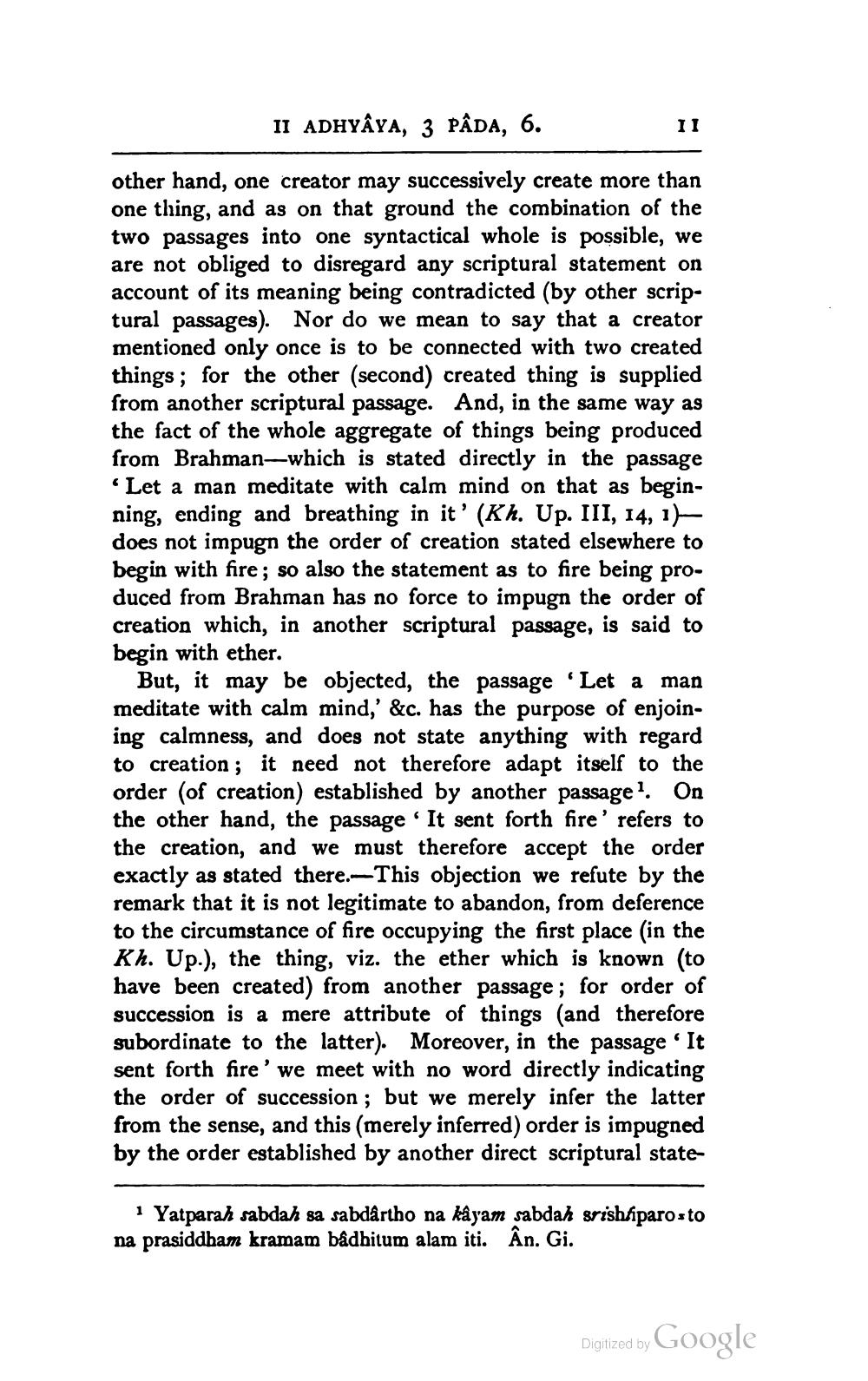________________
11 ADHYÂYA, 3 PÂDA, 6.
II
other hand, one creator may successively create more than one thing, and as on that ground the combination of the two passages into one syntactical whole is possible, we are not obliged to disregard any scriptural statement on account of its meaning being contradicted (by other scriptural passages). Nor do we mean to say that a creator mentioned only once is to be connected with two created things; for the other (second) created thing is supplied from another scriptural passage. And, in the same way as the fact of the whole aggregate of things being produced from Brahman-which is stated directly in the passage
Let a man meditate with calm mind on that as beginning, ending and breathing in it' (Kh. Up. III, 14, 1) does not impugn the order of creation stated elsewhere to begin with fire; so also the statement as to fire being produced from Brahman has no force to impugn the order of creation which, in another scriptural passage, is said to begin with ether.
But, it may be objected, the passage 'Let a man meditate with calm mind,' &c. has the purpose of enjoining calmness, and does not state anything with regard to creation; it need not therefore adapt itself to the order (of creation) established by another passage. On the other hand, the passage It sent forth fire' refers to the creation, and we must therefore accept the order exactly as stated there.—This objection we refute by the remark that it is not legitimate to abandon, from deference to the circumstance of fire occupying the first place in the Kh. Up.), the thing, viz. the ether which is known (to have been created) from another passage; for order of succession is a mere attribute of things (and therefore subordinate to the latter). Moreover, in the passage . It sent forth fire' we meet with no word directly indicating the order of succession ; but we merely infer the latter from the sense, and this (merely inferred) order is impugned by the order established by another direct scriptural state
1 Yatparah sabdah sa sabdårtho na kâyam sabdah srishtiparosto na prasiddham kramam bâdbitum alam iti. An. Gi.
Digitized by
Digitized by Google




